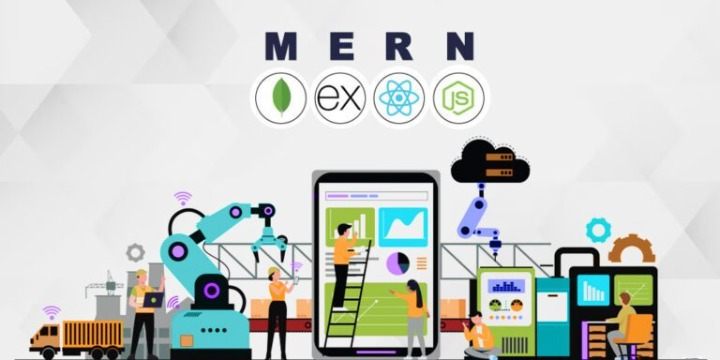Best cloud computing courses online
Containers and Kubernetes in cloud computing
Cloud computing has transformed how businesses deploy, manage, and scale applications. Containers and Kubernetes are at the heart of this transformation, providing flexibility, efficiency, and scalability. Whether you’re a professional looking to understand this powerful combination or someone exploring the best cloud computing courses online, this blog will explore how containers and Kubernetes work together to enhance cloud computing environments, addressing common questions along the way.
What Are Containers in Cloud Computing?
Containers are lightweight, portable software packages that bundle an application and its dependencies together. This packaging allows the application to run consistently across different computing environments, whether it’s on a developer’s laptop, a local server, or a cloud platform. Unlike traditional deployment methods, containers isolate applications from the underlying infrastructure, ensuring that the environment doesn’t affect the application’s performance.
Containers are particularly useful in cloud computing because they allow for microservices architecture, where each component of an application is packaged in its container. This modular approach simplifies application deployment, management, and scaling in cloud environments.
How Do Containers Differ from Virtual Machines?
While both containers and virtual machines (VMs) help in isolating applications, they operate at different levels of the infrastructure. VMs virtualize the entire operating system, meaning they require a separate OS for each instance. This process can consume more resources since each VM needs its share of memory, CPU, and storage.
Containers, on the other hand, virtualize at the application level. They share the host system’s kernel and resources, making them much more lightweight compared to VMs. Containers can be spun up quickly, require less overhead, and are more efficient in resource usage. This efficiency is a key reason why containers have gained so much traction in cloud computing.
What Is Kubernetes, and Why Is It Important?
Kubernetes is an opensource platform that automates the deployment, scaling, and management of containerized applications. Developed by Google, Kubernetes has become the de facto standard for container orchestration in cloud environments.
Kubernetes allows developers to manage thousands of containers across multiple environments seamlessly. It handles tasks like load balancing, service discovery, scaling, and selfhealing, reducing the operational burden on development and operations teams. Kubernetes makes it easier to ensure that applications are running reliably and efficiently, even as demand fluctuates.
How Does Kubernetes Manage Containers at Scale?
Kubernetes manages containers through a system of nodes, pods, and clusters. A node is a machine (either physical or virtual) that runs containers. Pods are the smallest deployable units in Kubernetes and can contain one or more containers. Multiple nodes form a cluster, which is managed by a Kubernetes control plane that coordinates the scheduling, scaling, and operation of pods.
Kubernetes automatically balances workloads across the cluster, ensuring that resources are optimally used. If a container fails, Kubernetes can restart it or move it to another node without any manual intervention. This automation allows organizations to manage largescale container deployments effectively and maintain high availability.
What Are the Benefits of Using Containers and Kubernetes in the Cloud?
Containers and Kubernetes offer numerous advantages in cloud computing environments:
Portability: Containers can run consistently across different environments, making it easy to move applications between development, testing, and production.
Efficiency: Containers use fewer resources than virtual machines, allowing more applications to run on the same hardware.
Scalability: Kubernetes automates the scaling of containers, ensuring that applications can handle fluctuating demand.
Flexibility: Containers enable microservices architecture, allowing teams to develop, deploy, and scale individual components of an application independently.
Resilience: Kubernetes’ selfhealing capabilities ensure that applications stay up and running, even if individual containers fail.
These benefits make containers and Kubernetes an ideal choice for modern cloudnative applications.
How Do Containers and Kubernetes Improve Application Deployment?
Containers and Kubernetes streamline the application deployment process by automating many of the complex tasks traditionally associated with managing applications in production. With containers, developers can package applications with all their dependencies, ensuring that the application runs consistently across different environments.
Kubernetes takes this a step further by automating the deployment, scaling, and management of these containers. Developers can define the desired state of their application, and Kubernetes will work to ensure that the actual state matches the desired state. This automation allows for continuous deployment and delivery, speeding up the development lifecycle and reducing downtime.
What Are the Key Use Cases for Containers and Kubernetes?
Containers and Kubernetes are used across various industries and scenarios, including:
Microservices Architecture: Containers are ideal for building and managing microservices, allowing each service to be developed, deployed, and scaled independently.
DevOps and Continuous Integration/Continuous Deployment (CI/CD): Containers and Kubernetes enable faster and more reliable software releases by automating deployment pipelines.
Hybrid Cloud and MultiCloud Deployments: Kubernetes can manage containers across different cloud environments, making it easier for organizations to run applications in hybrid or multicloud setups.
Edge Computing: Containers allow applications to be deployed at the edge of the network, closer to endusers, improving performance for latencysensitive applications.
These use cases demonstrate the versatility and power of containers and Kubernetes in cloud computing.
How Do Security Concerns Impact Containers and Kubernetes?
Security is a critical consideration when using containers and Kubernetes in cloud environments. Containers provide isolation, but they share the same underlying OS, which can create security vulnerabilities if not properly managed. Additionally, misconfigurations in Kubernetes can expose containers to unauthorized access or attacks.
To address these concerns, organizations should implement security best practices, such as:
Regularly updating container images and the Kubernetes platform
Implementing network segmentation and rolebased access control (RBAC) in Kubernetes
Using security tools to scan container images for vulnerabilities
Monitoring container and Kubernetes activity for suspicious behavior
By taking these steps, organizations can mitigate security risks while benefiting from the flexibility and efficiency of containers and Kubernetes.
How Can You Get Started with Containers and Kubernetes in Cloud Computing?
Getting started with containers and Kubernetes involves several steps:
1. Learn the Basics: Understand the concepts of containers and container orchestration, including Docker and Kubernetes.
2. Set Up a Local Environment: Use tools like Docker Desktop or Minikube to experiment with containers and Kubernetes on your local machine.
3. Try a Cloud Provider: Major cloud providers like AWS, Google Cloud, and Azure offer managed Kubernetes services (e.g., EKS, GKE, AKS) that simplify the deployment and management of containers in the cloud.
4. Follow Best Practices: As you deploy applications, follow industry best practices for security, scaling, and management.
With these steps, you can start leveraging the power of containers and Kubernetes to transform your cloud computing environments.
Conclusion
Containers and Kubernetes have revolutionized cloud computing, making it easier to develop, deploy, and manage applications at scale. By understanding how these technologies work and how to implement them, businesses can build more resilient, scalable, and efficient cloud environments. For those interested in mastering these skills, enrolling in cloud computing courses online can provide the necessary knowledge and hands-on experience to excel in this evolving field.




